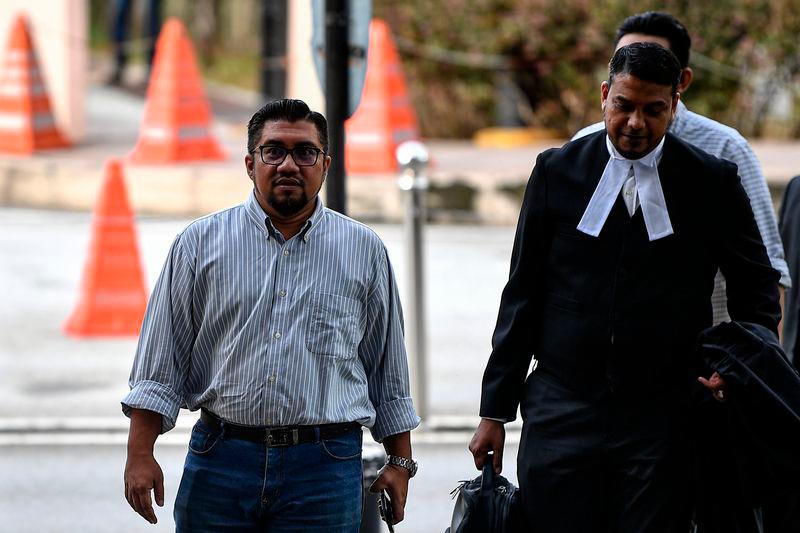KUALA LUMPUR: The High Court here today issued a gag order for Bersatu Information Committee member Badrul Hisham Shaharin or Chegu Bard restraining him from issuing any statements or comments on his ongoing criminal defamation case.
Judge K.Muniandy made the decision after allowing the prosecution’s application to review the Sessions Court’s decision to reject the gag order.
“The order refused by the Session Court Judge (SCJ) is found to be improper by this court, and pursuant to Section 325 (1) of the Criminal Prosedure Code (CPC) this court in its exercise of revisionary jurisdiction allows the application for criminal revision and pursuant to Section 316 (c) of the CPC, reverse the said order by the SCJ.
“In the premise, pursuant to inherent jurisdiction of this court, the gag order is now made as supplemental to the order of bail granted to the respondent (accused) pending his trial,” he said.
In his judgment, Judge Muniandy said it is best if the trial judge hears the case in accordance of the rule or law and procedure without heeding to any statement, comment and criticism, which may be levelled in the entirety against the case.
“The legal principles cited, pertains the sanctity of the trial which has to be preserved at all costs. As the charge signifies, which is pursuant to Section 500 read with Section 499 of the Penal Code, its rationale is to prevent any imputation which will harm the reputation of the Yang di-Pertuan Agong,” the judge said.
The judge said unlike a civil case, where the aggrieved party is in a position to apply for an injunction to prevent and restrain the offender from repeating the defamatory statement, such an avenue is not available to the prosecution in a criminal proceeding, as once the matter reaches the court, the court takes over conduct of the case to ensure that justice is not compromised both for the prosecution and the accused person.
“Institution of a contempt proceeding or the like is a matter to be taken care of eventually when the need arises. Thus, until then the freshness of issues to be ventilated at the trial as well as sanctity of the trial has to be preserved by the court,” he said.
Judge Muniandy made the decision in relation to the prosecution’s application to review the Sessions Court’s decision that did not allow a speech ban order for Badrul Hisham to issue any comments or statements for the charge of issuing defamatory statements against the Yang di-Pertuan Agong that Badrul Hisham was facing.
Meanwhile, in a separate court, Judge Datuk Azhar Abdul Hamid rejected the prosecution’s application to review the Sessions Court’s decision that did not allow the speech ban order for Badrul Hisham to issue any comments or statements for the charge of publishing inflammatory publications on his Facebook page.
Judge Azhar said this court agrees with the argument of the respondent (Badrul Hisham) that there is no strong reason for this court to change the order given by the Sessions Court judge when this application was made in the said court.
“Therefore, the prosecution’s application for a gag order against the respondent was rejected. However, the respondents are reminded that the freedom of expression granted according to Article 10 of the Federal Constitution has limits and is not something absolute,“ said the judge.
On April 29, Badrul Hisham, 45, was charged with publishing a seditious publication on his Facebook page in Taman Bukit Cheras here, at 12.15pm on April 6.
The charge is presented in accordance with Paragraph 4(1)(c) of the Sedition Act 1948 which can be punished under subsection 4(1) of the same act, can carry a maximum fine of RM5,000 or imprisonment not exceeding three years or both, if convicted.
Badrul Hisham was also charged with issuing defamatory statements, with reason to believe that the defamatory statements would damage the good name of the Yang di-Pertuan Agong.
The offence was allegedly committed at the Office of the Istana Negara Comptroller, here at 6 pm on Jan 22, according to Section 500 of the Penal Code which can carry a maximum prison sentence of two years or a fine or both, if convicted.
The court allowed Badrul Hisham to be bailed at RM10,000 with one surety for each charge and rejected the prohibition order requested by the prosecution.









